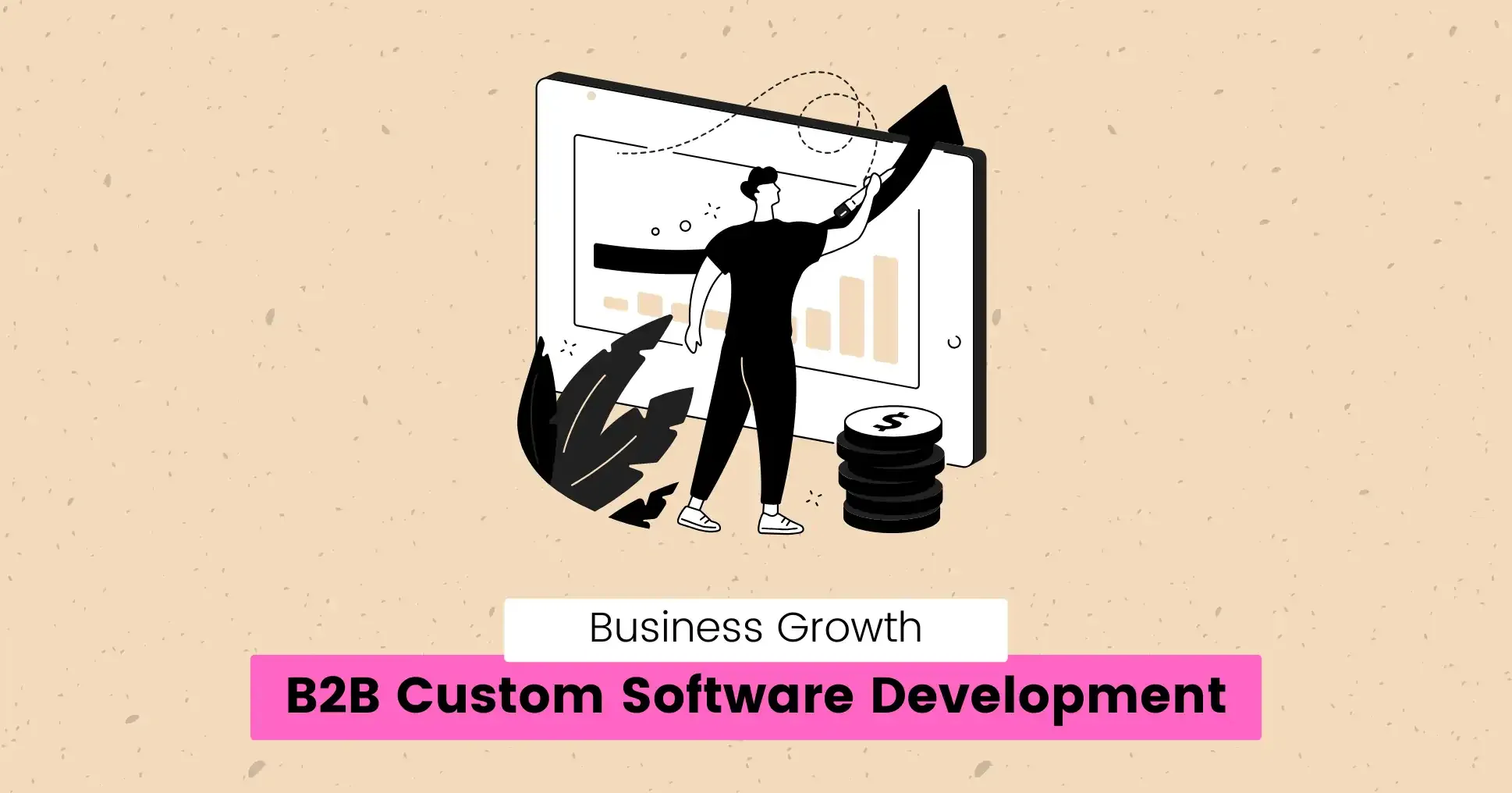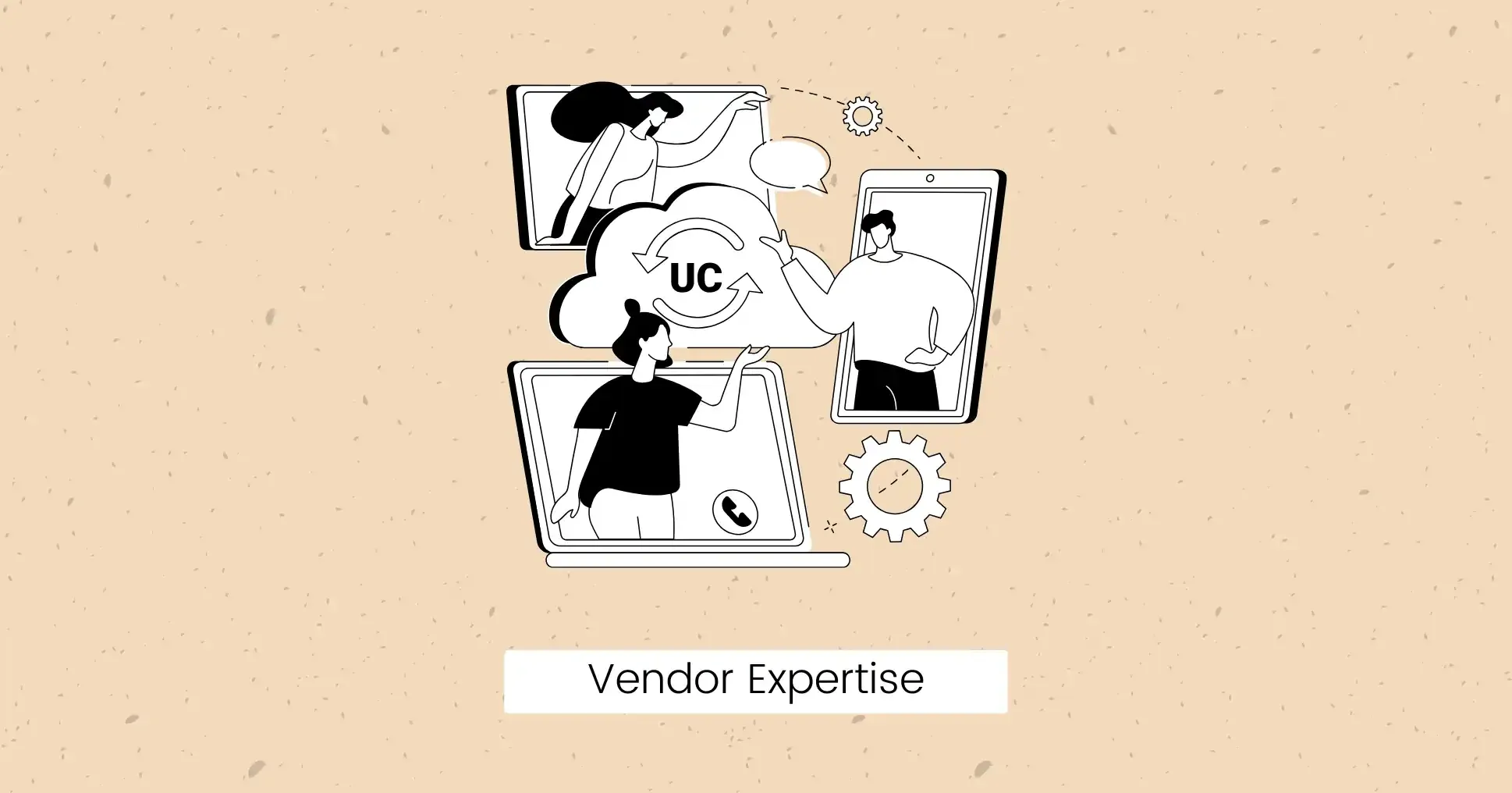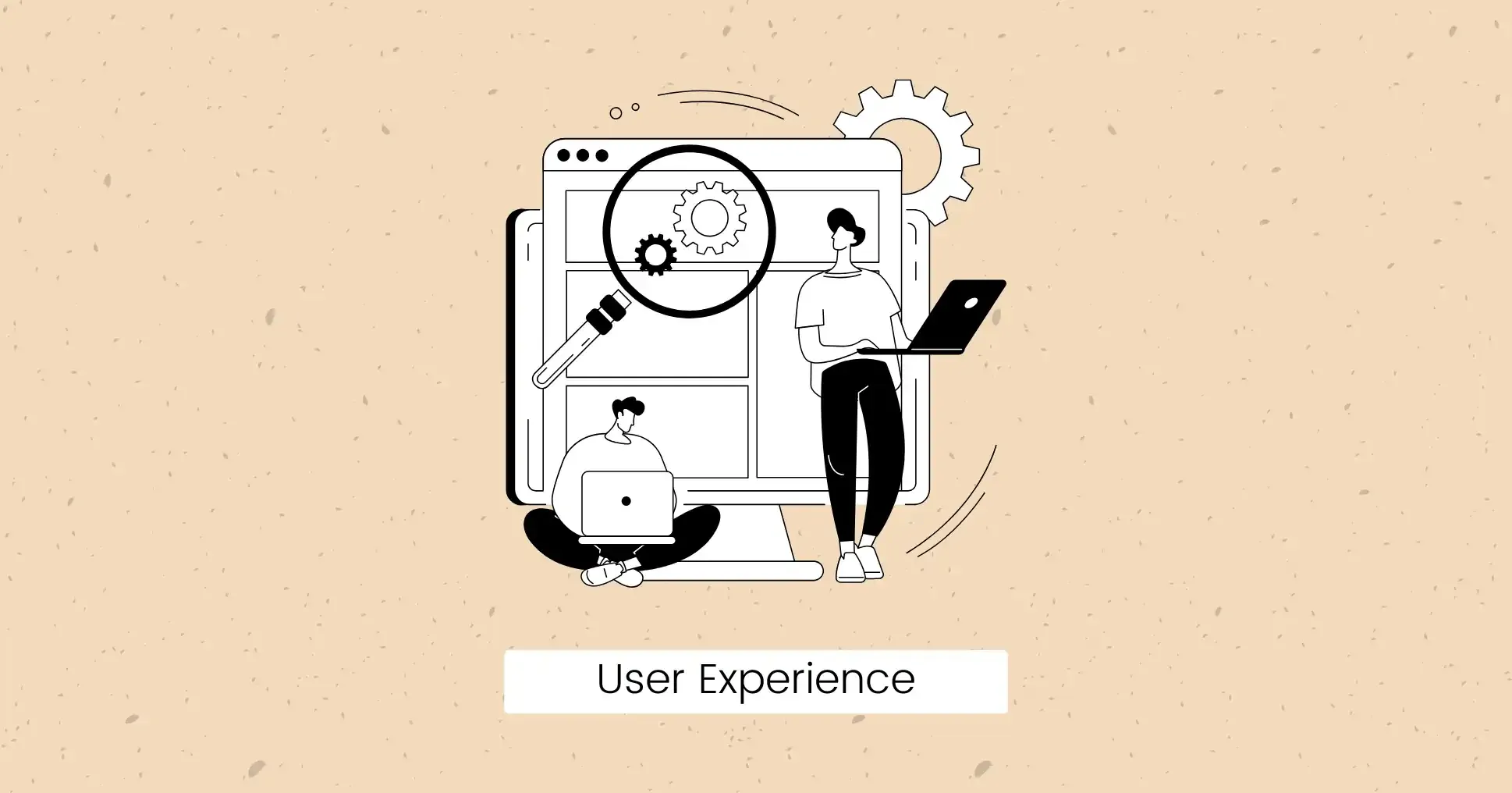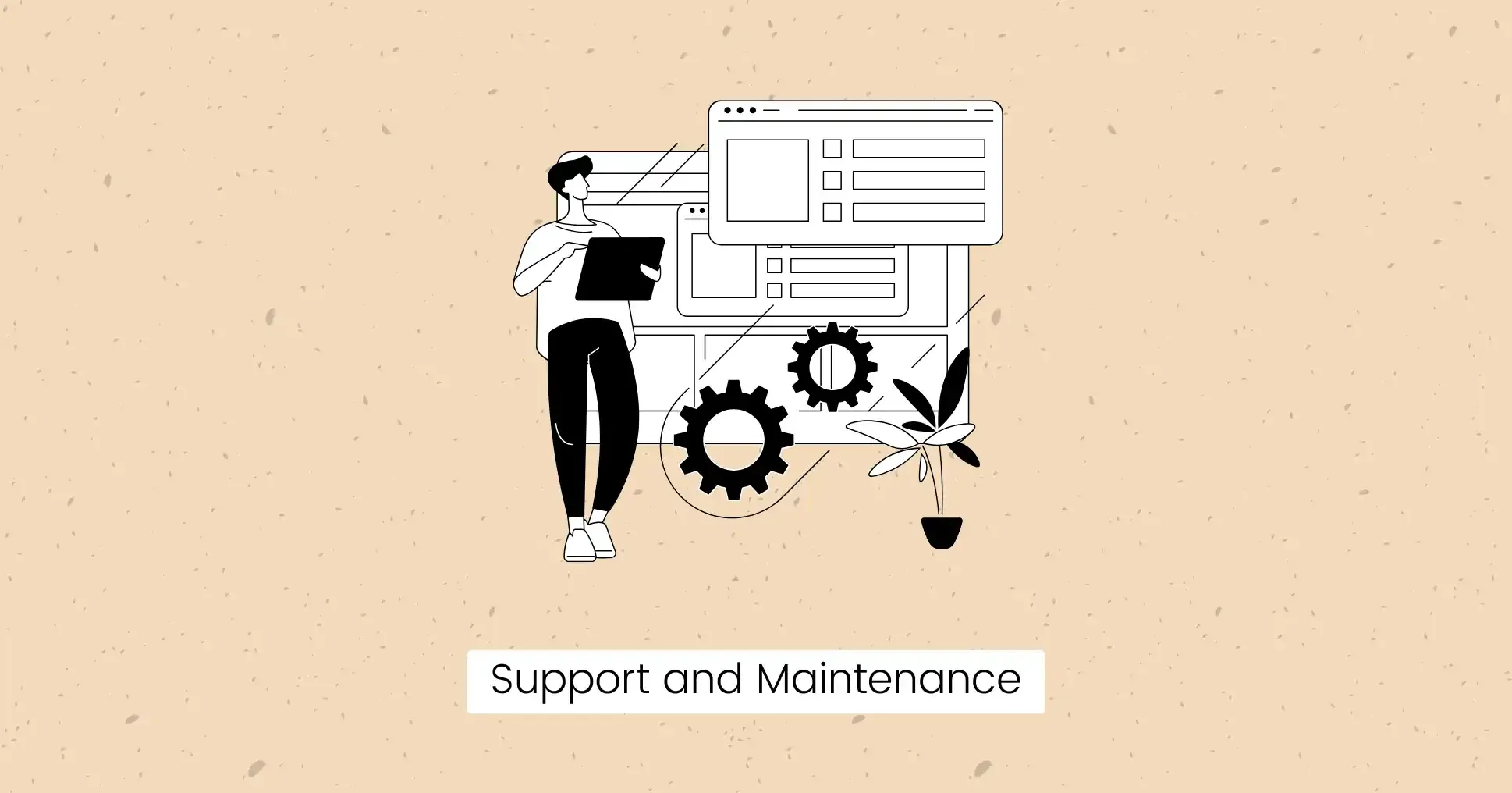B2B Custom Software Development for Business Growth (2025)

Every business faces unique challenges and requires flexibility to adapt to changing requirements, but standard software may not always meet these needs.
Managing multiple tools can be time-consuming and slow down your team.
Custom B2B software development is a highly effective way for companies to improve productivity, cut costs, and remain competitive in the corporate world.
You get tools built specifically for your processes, helping you work smarter and scale effectively.
You might be wondering:
- How to decide if your company needs a customized solution?
- How exactly does B2B custom development work?
- Is it worth the cost, and does it solve core business problems?
Keep reading to learn everything you need to know about custom software development for B2B and how it can help you grow your business.
Need Help Evaluating Your Software Options?
Our experts can help you analyze your specific needs and guide you through the decision process. Schedule a free consultation to discuss your requirements and find the best solution for your business.

Let’s get started.
What is B2B Software Development?
B2B custom software development involves developing software solutions to simplify business-to-business interactions and activities.
Unlike generic, off-the-shelf software, custom software isn’t one-size-fits-all.
It’s purpose-built from scratch to fit the way your business operates and help your team work more efficiently.
Custom software solutions help automate processes, optimize workflows, and manage specific challenges that standard software can’t handle.
For Example:
A business might require software that syncs inventory, production schedules, and supplier data into a single system.
Off-the-shelf software may not include all of the functionality required for real-time inventory tracking or order processing while integrating with the client’s systems.
By outsourcing custom software development , you can employ a team of experts to develop these exact features for you.
Key Benefits of Custom B2B Software Development
B2B software development solutions offer a number of benefits that help you grow your business in a resourceful way.
Here are some of the advantages of B2B custom software.
- Specificity: Custom solutions work the way your business does. They fit your business requirements, processes, and objectives instead of forcing you to adjust to generic tools. This means your team can work more quickly and effectively.
- Efficiency: Custom solutions save time and reduce errors by automating repetitive tasks and smoothing workflows. For example, customized CRM software can improve the user experience by optimizing sales and customer service.
- Scalability: As your business needs change, the software can be updated or expanded to handle more users, features, or processes without compromising quality or user data.
- Integrations: Custom-built solutions can integrate with third-party apps and your existing systems without interfering with day-to-day operations.
- Security: When a development company builds software for you, you control the security features. This means you can follow your company’s security protocols and protect data privacy without the risk of security breaches and vulnerabilities that come with general tools.
- Cost Effective: Off-the-shelf software may appear cheaper at first, but hidden costs add up as your team expands, making it difficult for small businesses to keep up with growing demands. In the long term, B2B customized software is more cost-effective as you won’t have to worry about monthly subscriptions or upgrades.
- Competitive Advantage: A unique solution that addresses your specific needs and business issues gives you an advantage over competitors who rely on ready-made tools. You can give better services to your customers and adapt more quickly to market changes.
Factors to Consider for B2B Custom Development
Now that you know the benefits of custom website development for your business, it’s time to consider the key factors when choosing a customized solution.
Requirement Analysis

Identify the specific problems you want the software to solve.
This involves gathering detailed information from stakeholders about your business needs, challenges, and objectives.
Key Tips:
- Determine how the software fits with your long-term goals.
- What features and functionalities are critical to business operations?
- Are you looking to improve workflow efficiency or provide better customer service?
- Do you want flexibility and complete control over your software infrastructure?
This analysis will help you in deciding whether you require custom software development services or if a ready-made solution will suffice.
For a more detailed comparison, read our Build vs Buy Software guide.
Vendor Expertise

Start researching different platforms to find developers who specialize in B2B software development services.
Key Tips:
- Choose a reliable software development partner with experience.
- Review their technical expertise and portfolios to see if they have delivered similar projects.
- Check for positive feedback and testimonials from previous clients.
- Clarify who owns the software and its source code.
Scalability and Security

Look for a company that can adapt to your changing project requirements and has a proven record of protecting client data.
Consider how your needs might change in the future, then prepare accordingly to prevent any unexpected events.
Key Tips:
- Plan for future features, users, or integrating with new tools.
- Address data protection and compliance with industry standards.
- Invest in strong security features like encryption and role-based access.
- Ensure the software integrates with your existing CRM, ERP, or accounting tools.
Resources Planning

Custom software development is an investment that requires careful planning for optimal resource utilization.
Key Tips:
- Define a realistic budget for development and future maintenance.
- Focus on long-term ROI over initial investment and short-term savings.
- Set development, testing, and deployment timelines to keep your project on track.
User Experience

A well-designed application is essential for retaining visitors and reducing bounce rates.
If the user interface is too complicated, your staff or clients may struggle to find the information they need.
Key Tips:
- Make sure the software is easy to use.
- Prioritize ease of adoption for your team and clients.
- Avoid unnecessary complexity that adds cost and slows development.
- Focus on simple layouts and easy navigation.
Support and Maintenance

Decide what happens after the software is delivered.
Your software vendor should offer post-development support, updates, and improvements for smooth operations.
This will demonstrate their commitment to long-term partnership and help your company stay relevant.
Key Tips:
- Plan for regular updates, bug fixes, and scalability adjustments.
- Monitor business performance after deployment to see what works and what doesn’t.
How Does Custom Software Development Work?
The custom software development process comprises the complete software development lifecycle, from idea to execution, to meet your specific business needs.
It involves close collaboration and communication between your team and development partner , who brings technical expertise.
This process guarantees that the finished product meets your objectives and provides real value.
- Design: The development team will build a blueprint based on your requirements and specifications, including the architecture, workflows, and user interface design. They will create prototypes to picture the final product and gather input from stakeholders to verify that it is user-friendly and meets your expectations.
- Development: Developers write the code to build the software according to the approved design. The process involves building and testing small sections of the code to see if it works well.
- Testing: The software is thoroughly tested for functionality, performance, usability, security, and compatibility with existing systems.
- Deployment: After testing, the software is deployed in a production environment for installation and user acceptance testing to confirm that it can operate without breaking and is ready for use.
- Maintenance: After launching the software, developers provide ongoing maintenance to update or adapt the software to changing needs.
Final Words
In conclusion, custom software may require more upfront investment, but its value lies in how well it supports your business and allows for future growth.
You can hire experienced professionals like JetCoders for cost-effective and secure B2B software solutions.
FAQs
How long does it take to build custom software?
Building custom software can take anything from a few weeks to several months, depending on the complexity, features, and the development team’s efficiency.
Which is better: a custom website or WordPress?
A custom website is better for scalable and highly specific needs, while WordPress is good for quick, cost-effective setups with pre-built templates and plugins. The choice depends on your goals and budget. For more info, see Custom Website vs. WordPress.